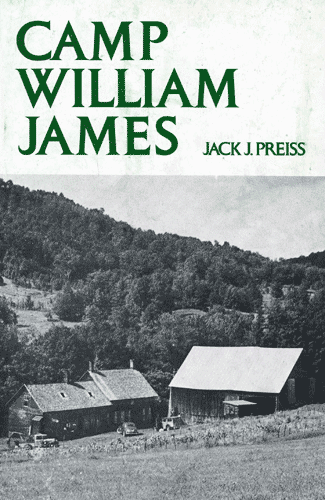Camp William James

In the last chapter of his book, The Christian Future, Rosenstock-Huessy wrote in 1945: “Our peacemakers and planners must be supported by camps all over the globe, where youth, recruited from every town and village all over the globe, serves. This service must implement the global organization as the young must experience what the old are planning before the old can have any authority.”
In statements dating back to 1912, Rosenstock-Huessy has shown himself to be the prophet of the United States Peace Corps. He was among the first to set up voluntary service camps in Europe after the First World War. In the United States, at the invitation of President Roosevelt, he undertook to reform the Civilian Conservation Corps by turning it into a universal service, open to young persons from all walks of life. That story is told inCamp William James. From the preface by the American historian Page Smith, who was a member of the original camp:
Today when the Congress of the United States considers proposals to reestablish, along new lines, a corps of young people volunteering for national environmental service, it is instructive to note that many of the issues as to the proper role, recruitment, and organization of an “ecology army” were first confronted and debated by the founders of Camp William James. When the state of California set up, in 1976, its own “California Conservation Corps,” it helped to draw attention once more to the issue of service by young people as “The Moral Equivalent of War.”… There could therefore be no more appropriate time to retrieve the history of Camp William James, the first practical effort to give effect to the idea of national service in time of peace.”
Paperback and hardbound, 272 pages.
